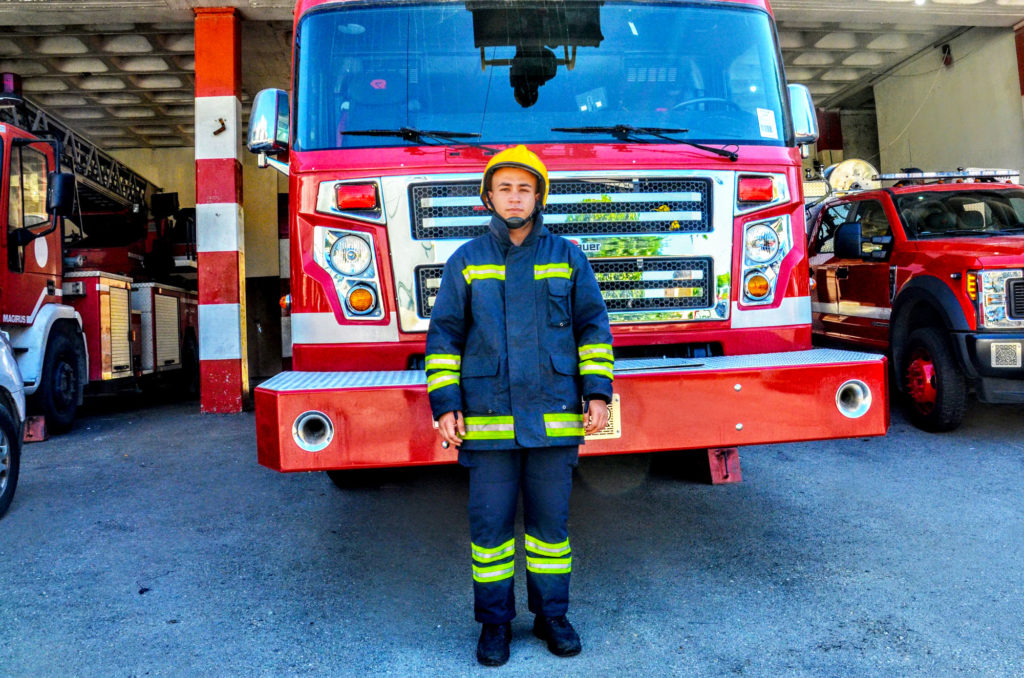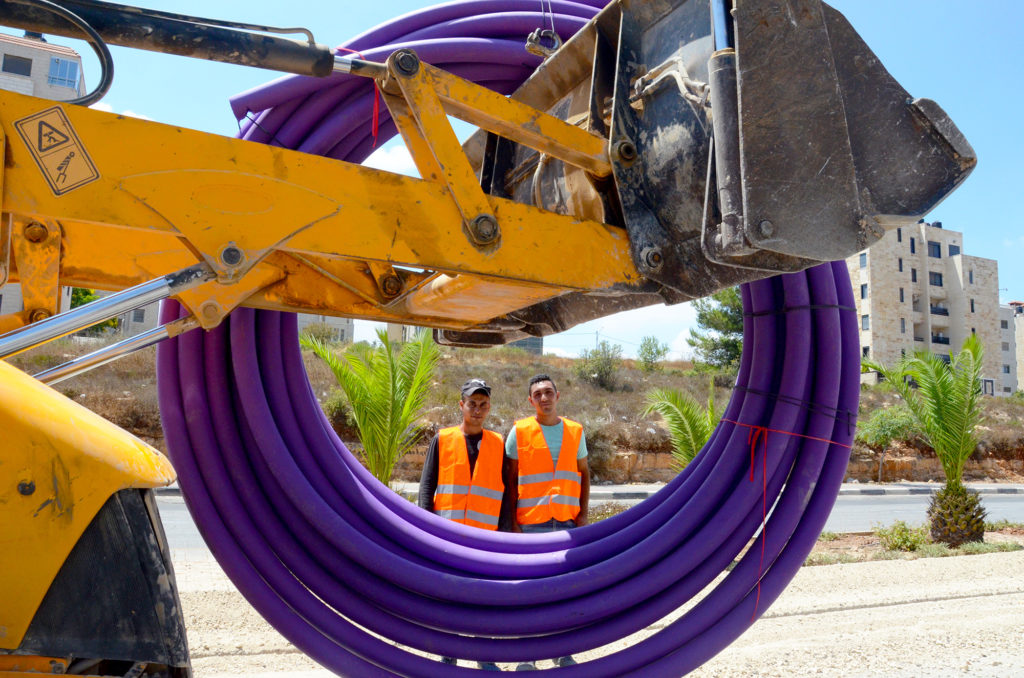Mar, 2011
Water covers more than two-thirds of the earth’s surface but that doesn’t mean everyone has access to it.
The 2,500 residents of Arrana had no water network and no access to a regular supply of potable water. Arrana, located just north of Jenin, is home to farmers who grow wheat and vegetables for a living. The only available water came from wells using tankers. But that didn’t ensure the water was safe to drink.
“Our only option was to use water drawn from random wells, and because we didn’t know the source of the water, we couldn’t guarantee that it wasn’t contaminated by sewage or exposed to other unsanitary sources,” confesses Mr. Ghazi Abu Hananeh, head of Arrana village council. “We were all unhappy with the situation, especially since many residents were constantly complaining of illnesses. Local doctors said that their symptoms were related to water-borne diseases.”
Mrs. Amina Mohammed (Um Abdallah), mother of six, tells us how inconvenient and hard life was before Anera intervened. They were plagued by the constant fear that water would run out. Arrana’s families had only one option for getting water. They had to rent a tanker, travel to a well and draw the water, then travel back to their home and fill the water tank there. The local school also needed large amounts of water which had to be collected every three days. Not only was this process a burden on the villagers’ daily lives, but the high cost of water was also a huge financial drain. Um Abdallah explains, “We had to rent a tanker and buy water every two weeks. It used to cost us nearly 300 shekels [$82US] a month, and it was too much.”
Anera used $750,000 of USAID funding under the Emergency Water Sanitation and Other Infrastructure (EWAS II) Program to construct an elevated water reservoir, install a main line, a complete water distribution network, booster pumps and a chlorination unit to disinfect the water. The village council also collected $140,000 from local households and businesses to install house connections to the water network.
Mr. Ghazi says some families were no longer able to afford water. “Something had to be done. We needed help and so we contacted Anera and, thank God, with USAID funding, they responded quickly.”
“Now we can clean our home and ourselves as we please without having to worry about water shortages and cuts. We are also fortunate to be able to water our plants more often.” The financial burden of buying water has also been reduced, with a cubic meter of water going from 12-15 shekels down to 4 shekels. Um Abdallah’s family now pays only 50 shekels for their monthly water bill.
However, one lesson Um Abdallah says her family will never forget from their previous difficult lifestyle is to appreciate every drop of water. “Even though we always have access to water now, I still teach my children to conserve. For example, we recycle dirty water from washing dishes and use it to water our plants. I think it’s very important to never waste such a glorious gift from God.”


